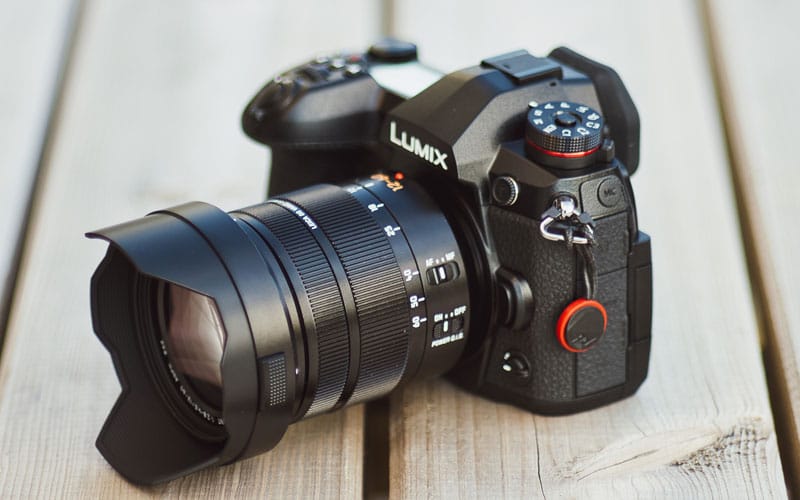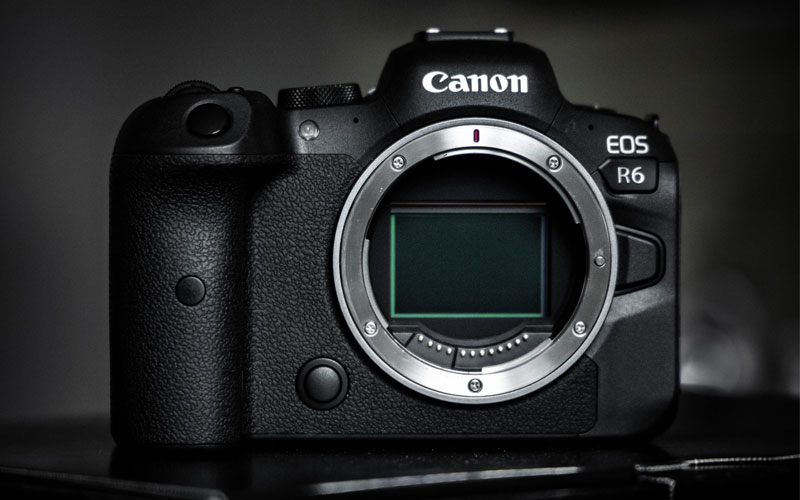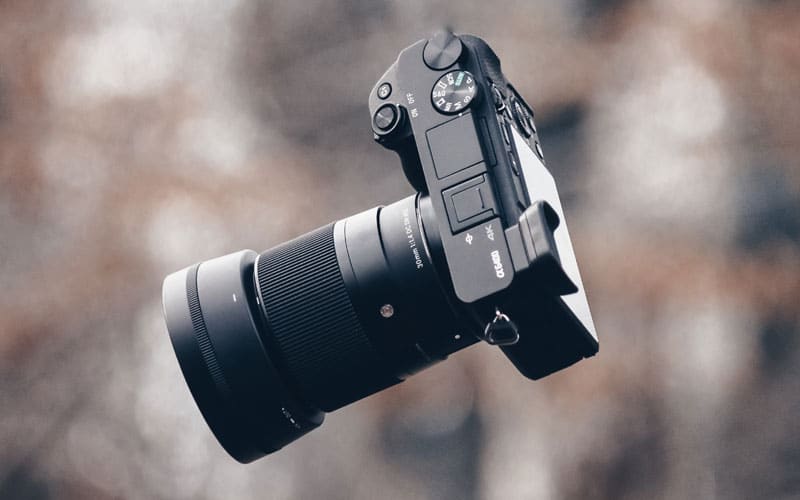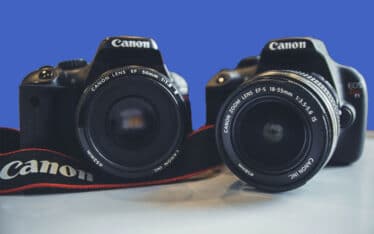Until quite recently, DSLR cameras were the industry standard and you probably never even considered that they would be replaced by newer technology. Today, however, mirrorless cameras are being widely adopted by photographers. If you’re accustomed to DSLR, should you make the switch? Just as importantly, do you even have a choice? Let’s look at the pros and cons of a mirrorless camera vs DSLR.
Pros and Cons of DSLR
The digital single-lens reflex or DSLR camera was the next stage after the pre-digital SLR cameras. They were an easy transition into digital photography when they became popular in the 1990s. DSLR cameras became far more advanced in the last few decades and offer quite a few advantages. However, there are also disadvantages, especially when compared to the newer mirrorless cameras.
Pros
- They perform well in low light environments.
- They have fast autofocus, which is great when shooting subjects such as animals, people dancing, or any type of motion.
- It’s easy to find lenses and other accessories for DSLR as they’ve been popular for so long. This, however, may not remain the case forever.
- Long battery life. A quality DSLR can take over 1,000 shots per charge, some as many as 2,000.
Cons
- They can be heavy and bulky, which is a limitation if you’re moving around a lot.
- They can be loud, which can be disruptive in certain settings.
- They don’t produce the best quality video images, so they aren’t ideal for video projects or if you’re doing both photos and videos.
These, of course, are generalizations and vary depending on the specs of the camera you’re using. Furthermore, many DSLR advantages can also be found in mirrorless cameras.
Mirrorless Cameras
Mirrorless cameras, also known as digital single lens mirrorless (DSLM) or mirrorless interchangeable lens cameras (MILC) have been around for about a decade now. They’ve become extremely popular in the last few years and are now quickly replacing DSLR as the industry standard for photographers. What sets them apart is the lack of a reflex mirror or optical viewfinder. Here are some of their top pros and cons.
Pros
- Lightweight. A mirrorless camera is usually smaller and lighter than a DSLR, a major advantage when you’re moving around carrying equipment.
- Cost. One of the biggest advantages of a mirrorless camera is that you can often get quality that’s comparable or superior to DSLR at a lower price, often by several hundred dollars.
- Tracking. While autofocus in DSLR can be quite good, the tracking ability of mirrorless cameras can be even better for capturing motion. This is especially good for athletic events, wildlife, or other fast-moving subjects.
- Quiet. A mirrorless camera has a silent shutter, which helps you keep a low profile and not disturb your subjects or people at an event.
- Take great videos. It’s widely believed that the future will be largely dominated by video. With mirrorless, you can get high quality videos even at the lower end of the pricing spectrum.
Cons
- Take longer to start up. While this depends on the model, DSLR cameras usually start up immediately while mirrorless models take a while. This isn’t a major issue unless you want to capture something quickly and your camera isn’t on at the time.
- More difficult to find lenses. Because mirrorless cameras are still fairly new, you can’t yet find the variety of lenses that you can for DSLR. This will soon change, though.
- Shorter battery life. The current generation of mirrorless cameras can’t match DSLRs in battery life. You may only get around 400 shots per charge as opposed to the 1,000+ with a DSLR.
A Matter of Preference
When comparing DSLR and mirrorless, your own preferences will determine which is better. For example, the lightweight and compact feel of mirrorless is an advantage to some. However, other photographers like the weightier feel of DSLR. You may also appreciate their greater durability. A lightweight mirrorless model may be more convenient to carry around, but it’s less sturdy and more vulnerable to the elements. Similarly, if you’re accustomed to looking through a lens rather than a video screen, you may prefer DSLR. However, this is also a matter of getting accustomed to new technology.
Why It Makes Sense to Switch to Mirrorless
If you’re accustomed to DSLR, is it worth the effort to make the switch to mirrorless? Regardless of your current preferences, the best reason to switch to mirrorless is that it appears to be the future of photography. You can only resist the latest technology for so long. 2020 was the first year that more mirrorless than DSLR cameras were shipped.
It’s up to you to decide which equipment works best for your needs. However, it also makes sense to keep up with the latest trends. Emerging technologies tend to progress and improve quickly while prices come down. It also becomes easier to find parts for newer models. In the coming years, you can expect to see these trends happening with mirrorless, as they get more affordable, and it becomes easier to find lenses and other parts for them. The sooner you start using this rapidly advancing technology, the faster you’ll get acclimated to it.








